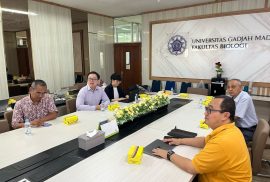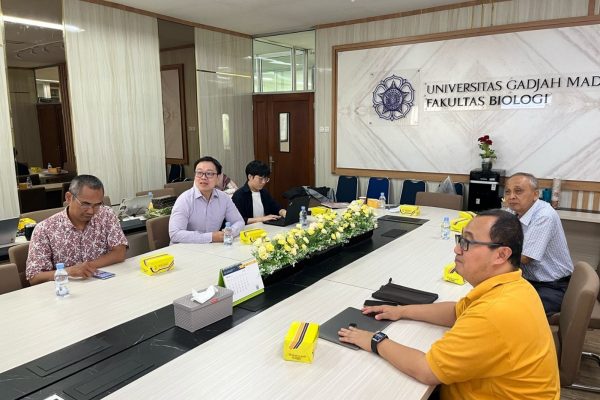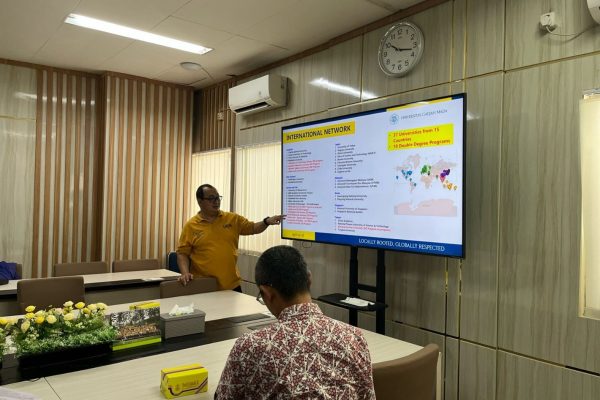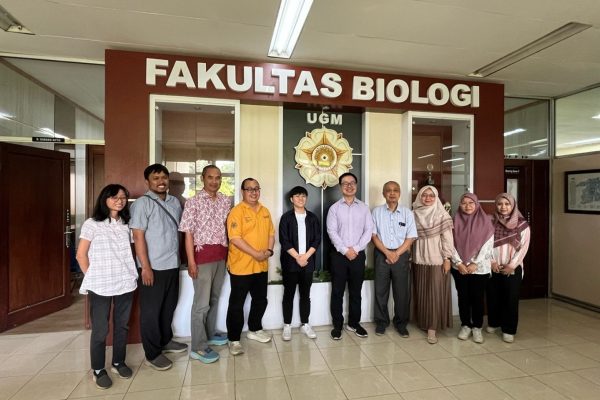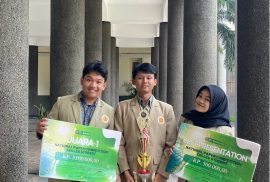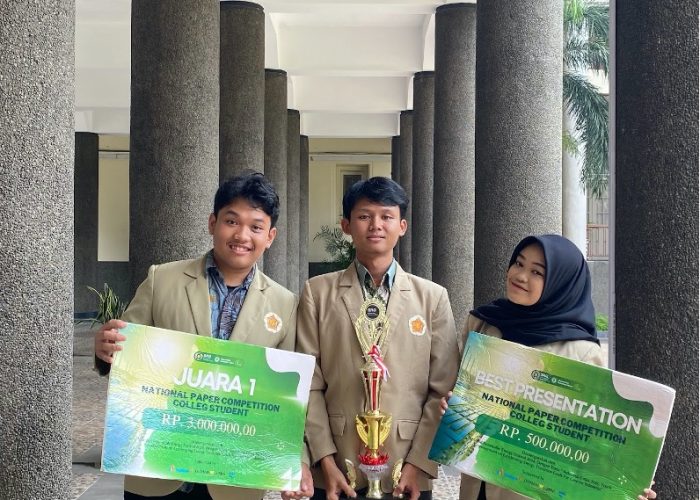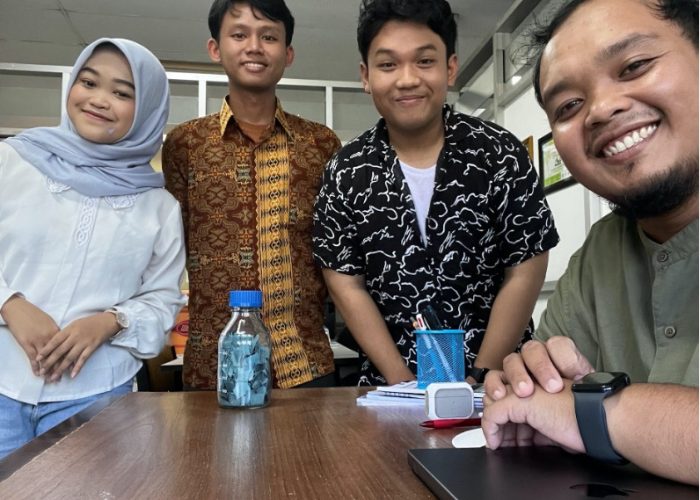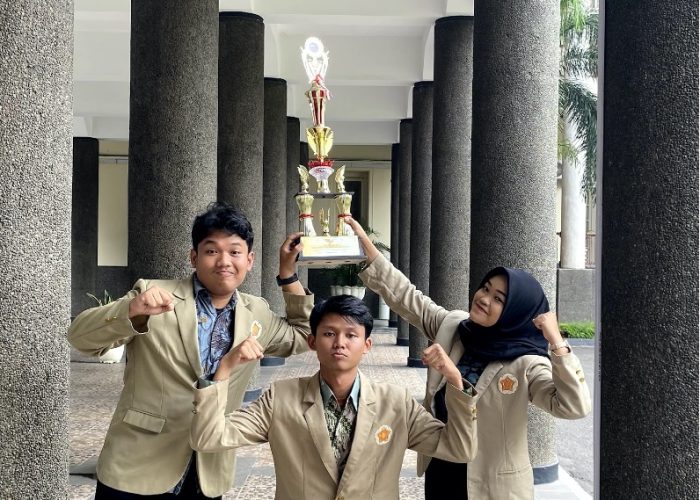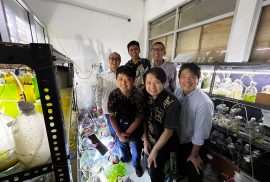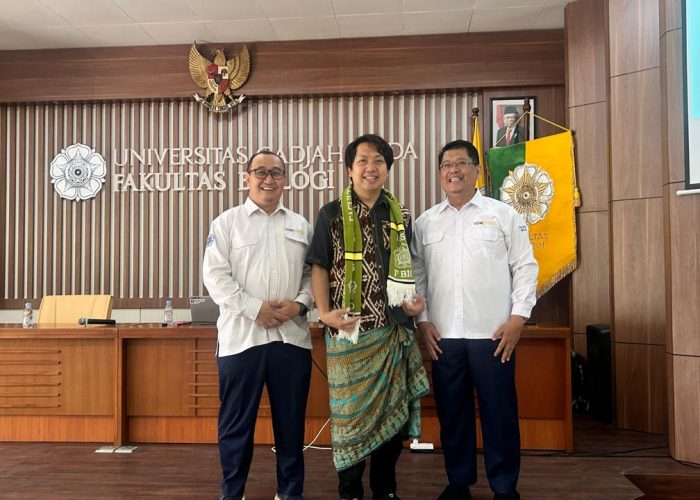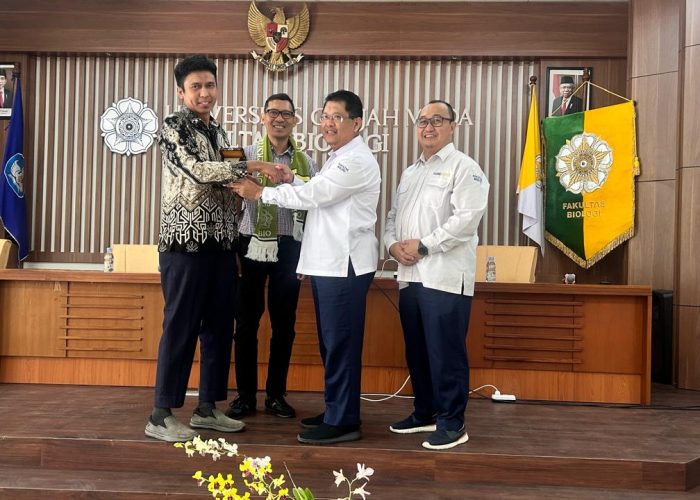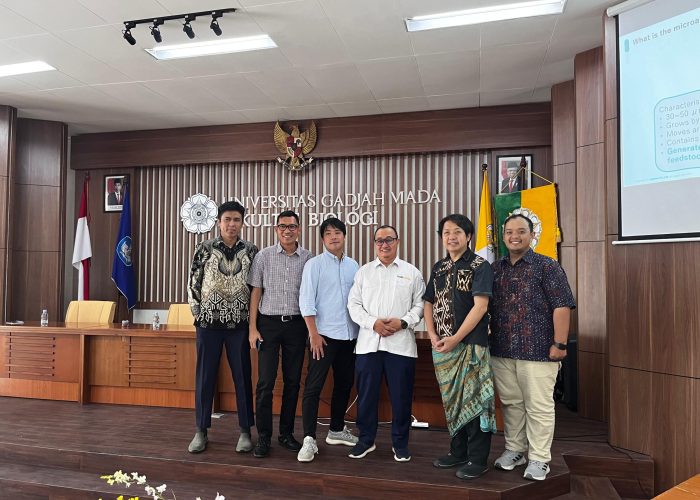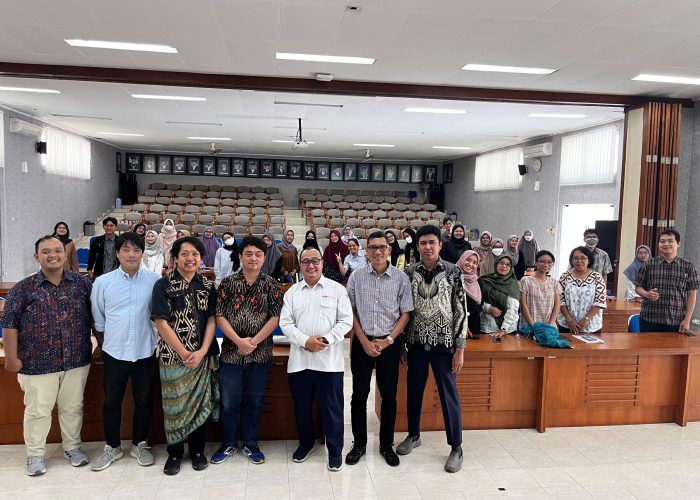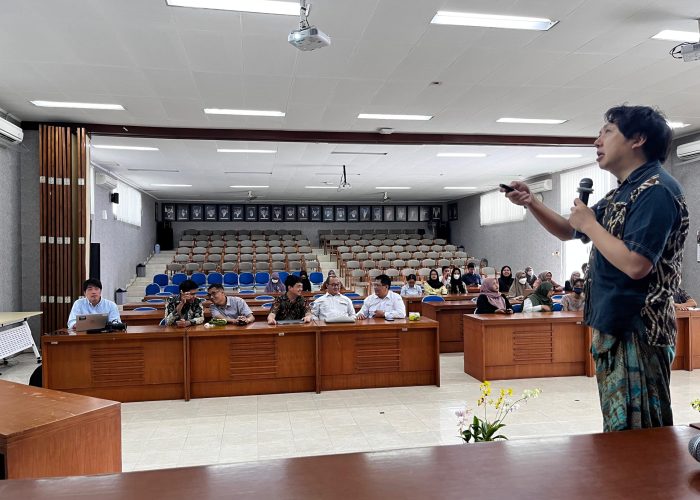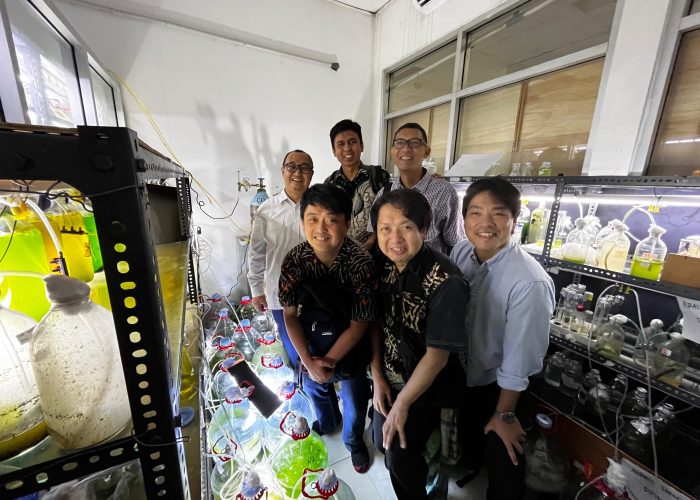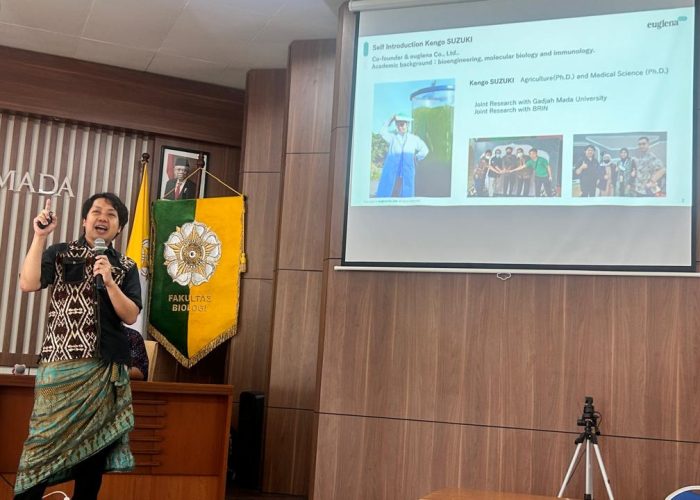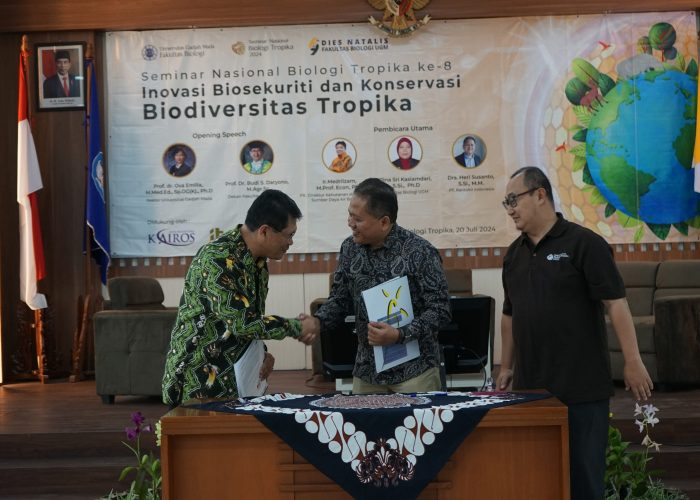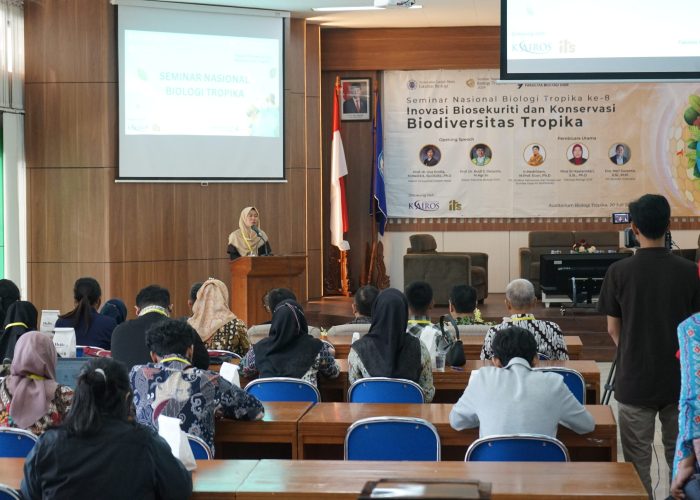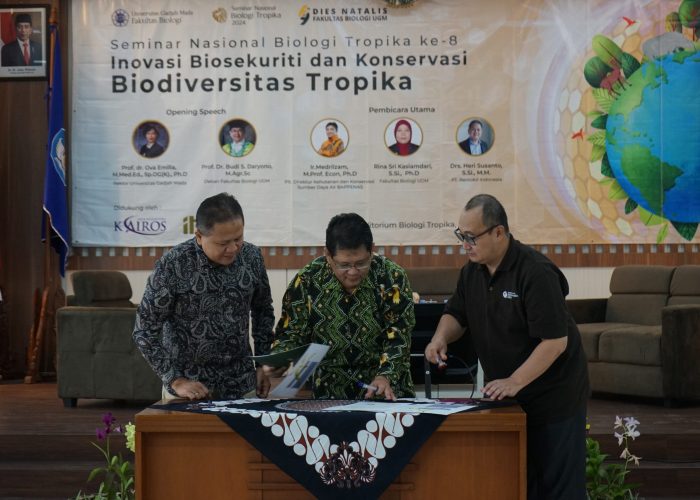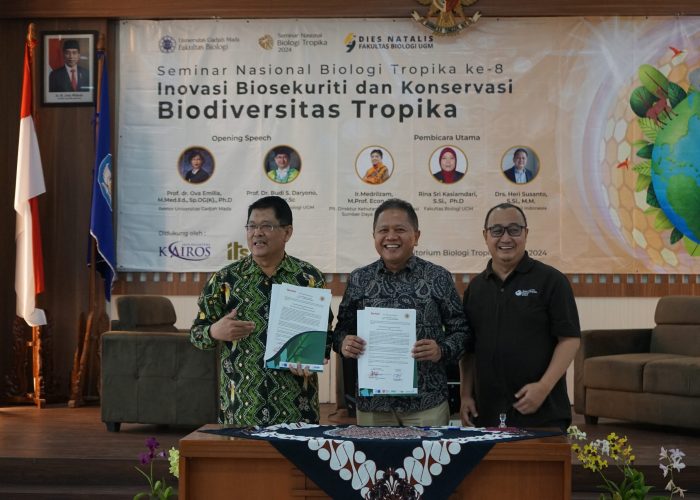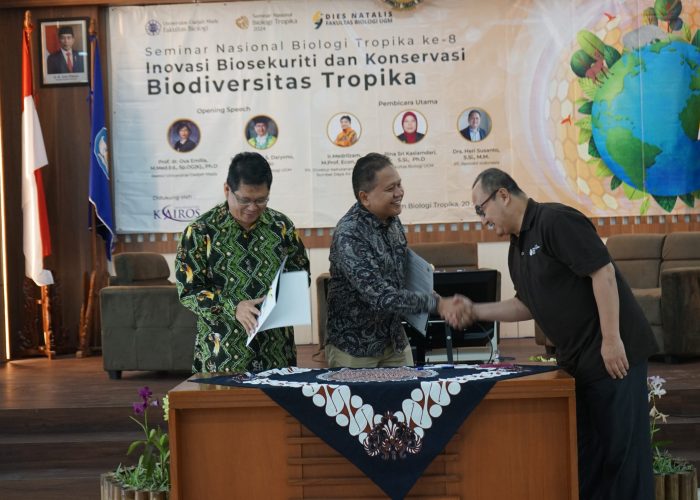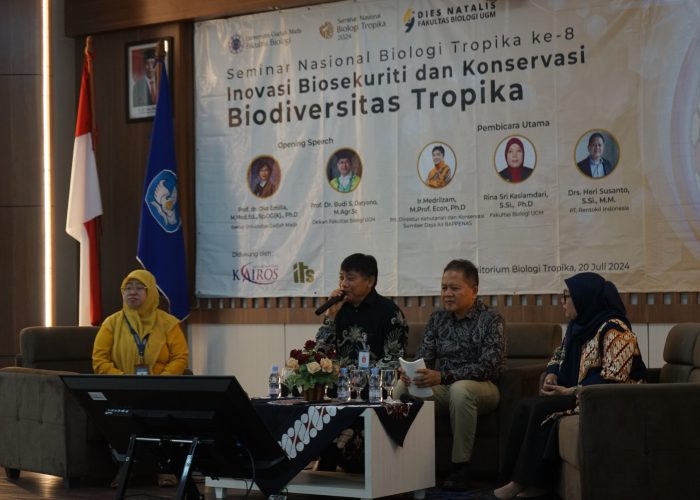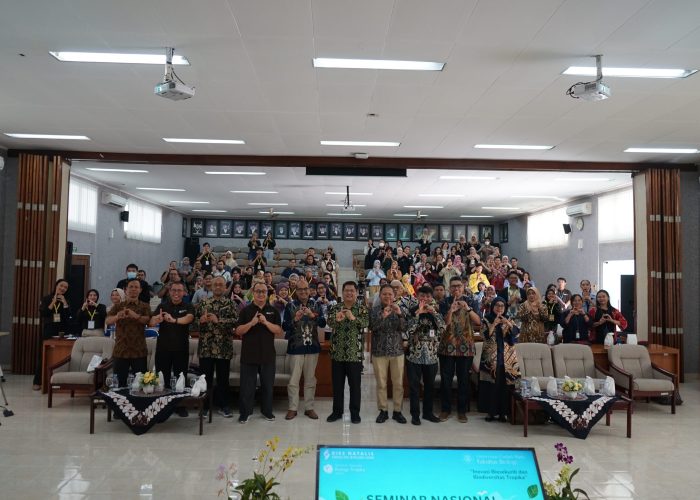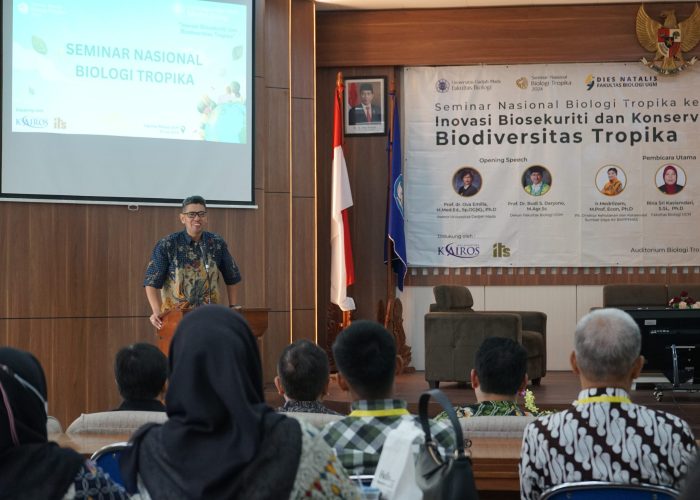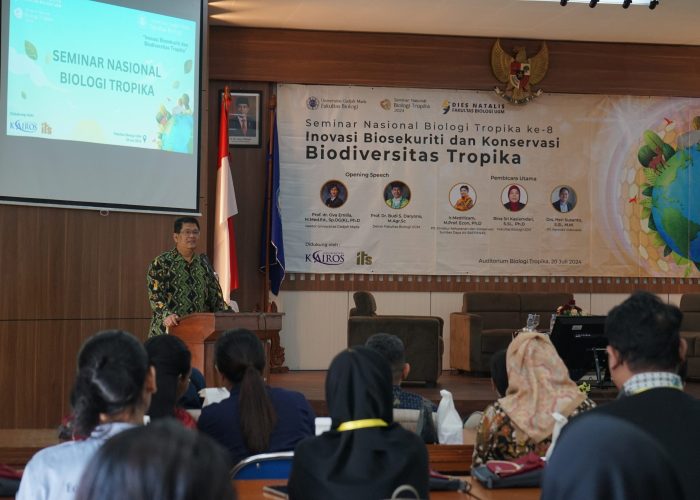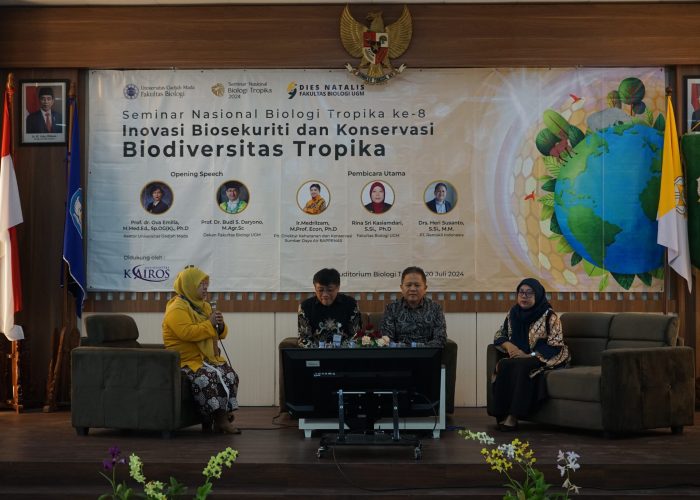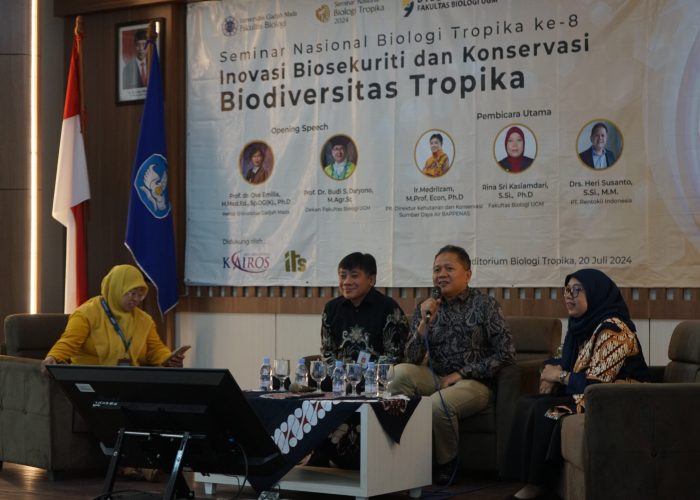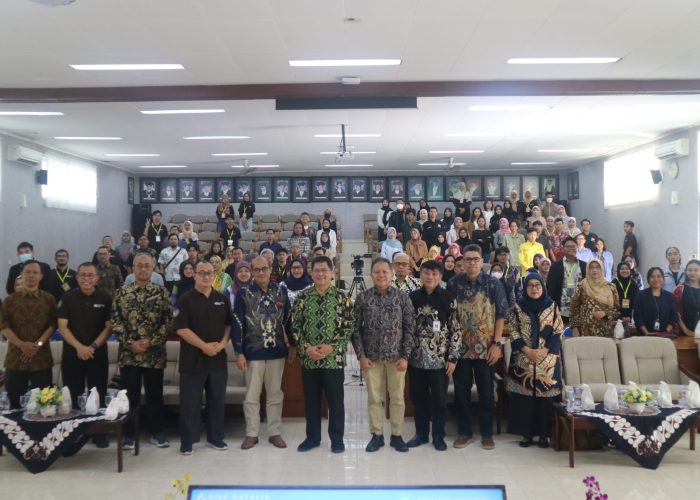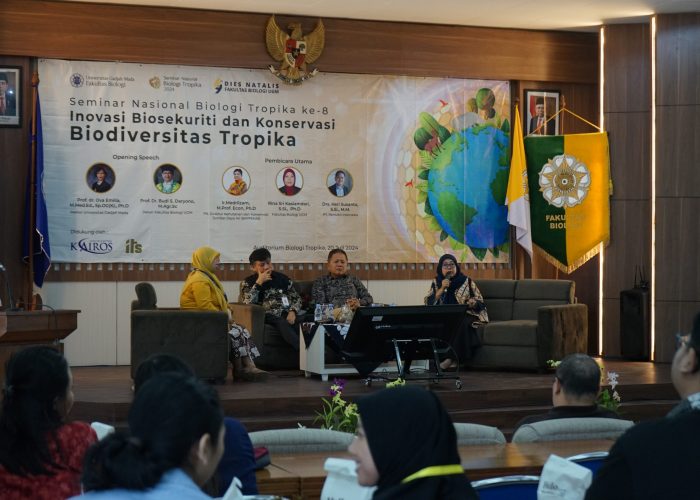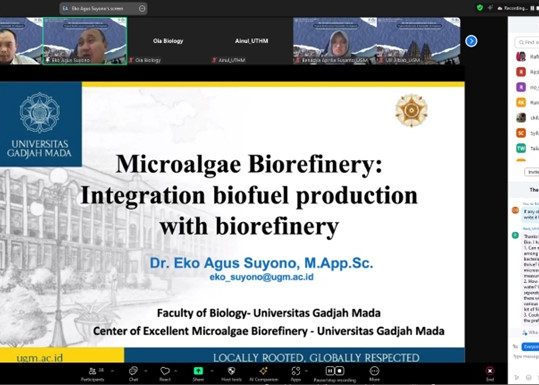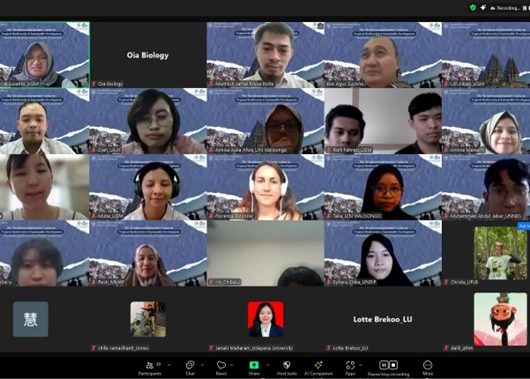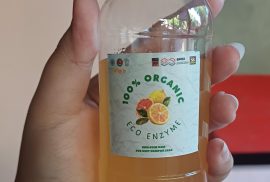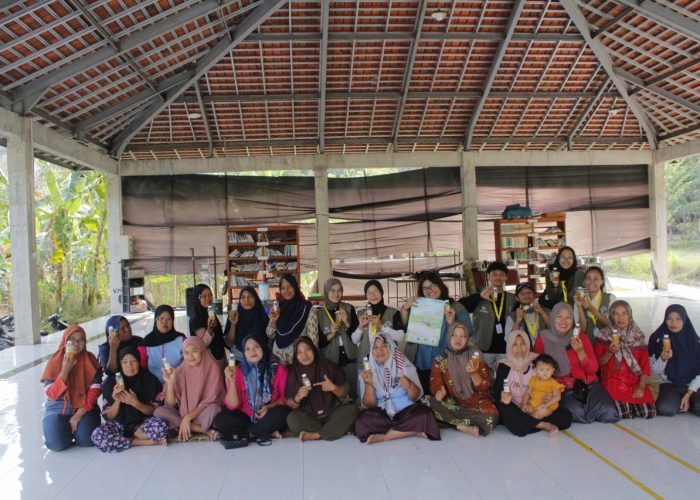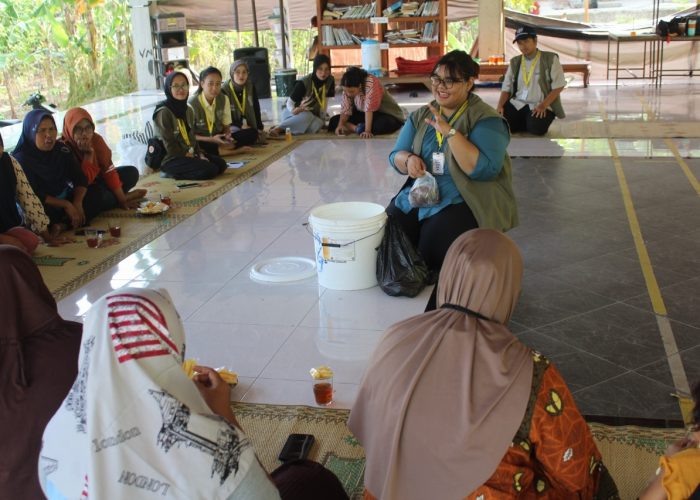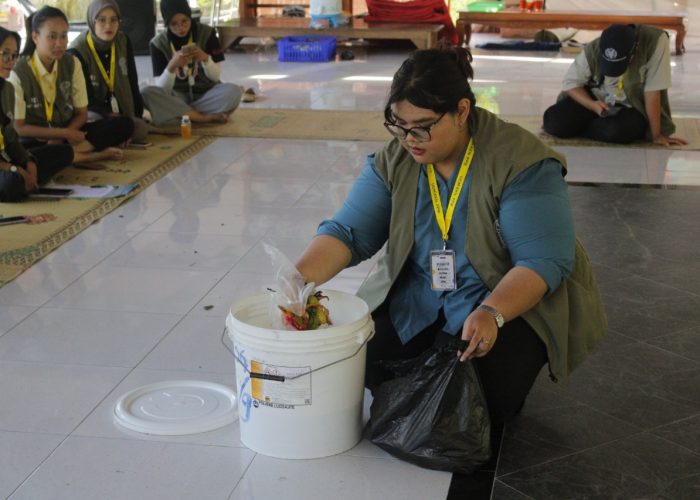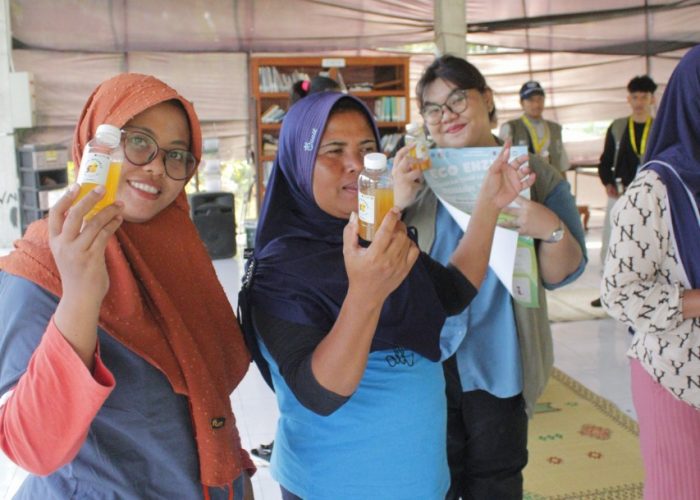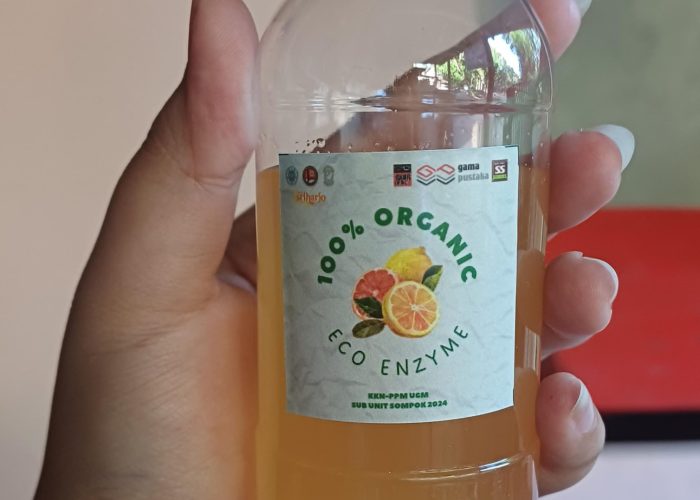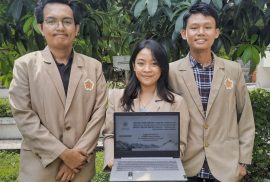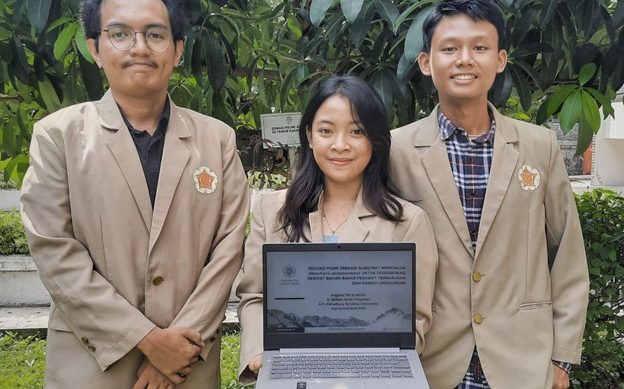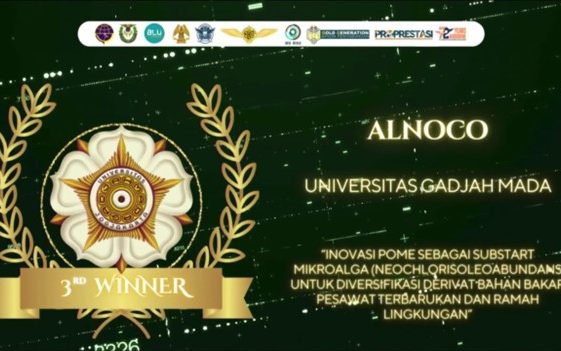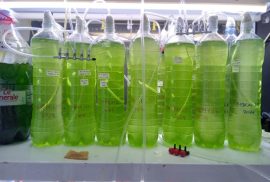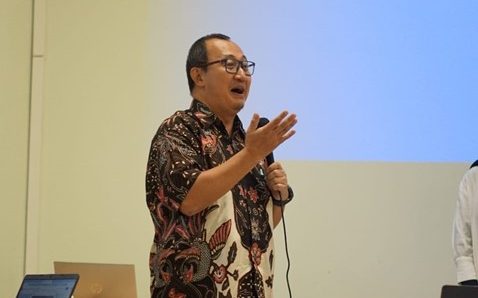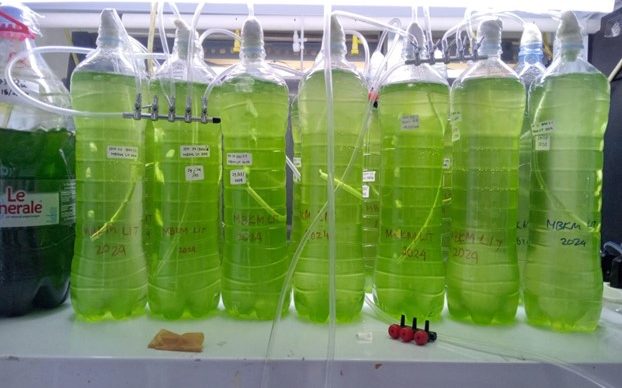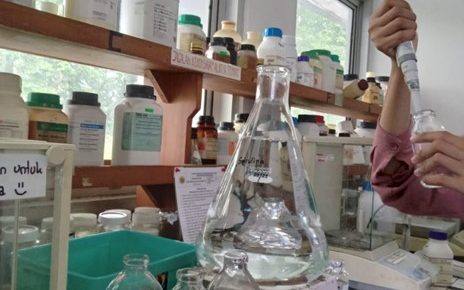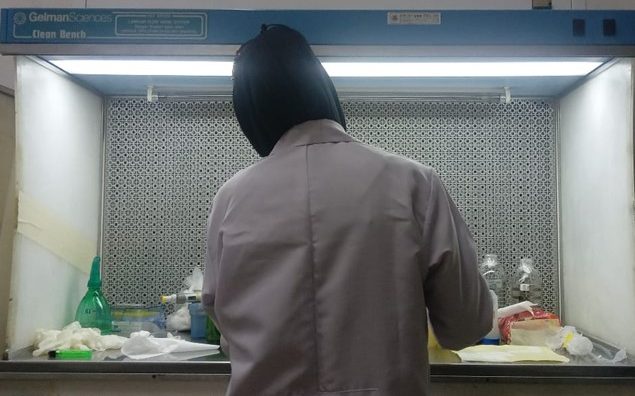SDG 7 : Grow Affordable and Clean Energy
This achievement further strengthens the role of UGM’s Faculty of Biology in driving research-based innovation to address global challenges, particularly in the fields of renewable energy and industrial biotechnology. The research contributes directly to the implementation of the Sustainable Development Goals (SDGs), particularly:
- SDG 7: Affordable and Clean Energy, by developing more sustainable and environmentally friendly bioenergy;
- SDG 12: Responsible Consumption and Production, through biotechnological approaches for efficient utilization of biological resources;
- SDG 13: Climate Action, by reducing reliance on fossil fuels and lowering carbon emissions.
Yogyakarta, September 12, 2024 – A student team from the Faculty of Biology, Universitas Gadjah Mada (UGM) has secured 1st Place in the Scientific Writing Competition at the New and Renewable Energy (NRE) Festival 2024, organized by the University of North Sumatra (USU). The grand final of this prestigious national competition was held on September 11, 2024, at the USU Student Center in Medan.
The team, named MY HEART, consists of K. William Hendri Panjaitan (2021), Firchamy Vuqi Aulia (2022), and Raja Steve Sudjatmiko Panggabean (2023), under the supervision of Dr. Eng. Thoriq Teja Samudra, M.Sc. Their winning paper, titled “Optimization of Carbon Absorption Based on Photosynthesis of Chlamydomonas reinhardtii Through the PEPC1 Gene Approach to Increase Lipid Biomass as Renewable Biodiesel Raw Material,” presents an innovative approach to tackling global carbon dioxide (CO₂) emissions using genetically modified microalgae.
Their research highlights the alarming increase in CO₂ emissions, with global fossil fuel emissions rising by 1.1% in 2023 to 36.8 billion tons. The transportation sector, especially in Indonesia, is a significant contributor to these emissions. The team proposed a solution utilizing Chlamydomonas reinhardtii, a microalga capable of absorbing CO₂ through photosynthesis and producing lipids, which can be used as a renewable raw material for biodiesel. By genetically modifying the PEPC1 gene in C. reinhardtii, the team demonstrated how the microalgae could enhance carbon absorption and increase lipid production, offering a more sustainable option for biodiesel production.
This research is a timely contribution to global efforts to reduce carbon emissions and aligns with Indonesia’s goal of achieving Zero Emission by 2060. Furthermore, it supports the United Nations’ Sustainable Development Goals (SDGs), particularly in the areas of Affordable and Clean Energy (Goal 7) and Climate Action (Goal 13).
The competition attracted 226 teams from 79 universities and polytechnics across 27 provinces in Indonesia, making the MY HEART team’s victory a significant achievement. Their success underscores the Faculty of Biology’s commitment to fostering innovative, applicable research in the field of new renewable energy. This accomplishment also demonstrates Universitas Gadjah Mada’s dedication to advancing sustainable science and technology, in line with its SDG initiatives. [Author: K. William Hendri Panjaitan]
Yogyakarta, July 1, 2024 – A team of students from the Faculty of Biology at Gadjah Mada University has achieved remarkable success by winning 3rd place in the CEWAMA Research Competition organized by the Indonesian Aviation Polytechnic Curug. This national competition ran from May 29 to June 25, 2024, for the scientific writing phase and concluded with final presentations on July 1, 2024.
The team, named “ALNOCO” (Algae Non Carbon), consists of K. William Hendri Panjaitan (class of 2021), K.H. Mahadhevy Ryrathna Vidhantyka (class of 2022), and Aqil Muhammad Hafiz (class of 2021). Under the guidance of Dr. Eng. Thoriq Teja Samudra, M.Sc., and Dr. Eko Agus Suyono, M.App.Sc., they presented a paper titled “INNOVATION OF POME AS A MICROALGAE (Neochloris oleoabundans) SUBSTRATE FOR DIVERSIFICATION OF RENEWABLE AND ENVIRONMENTALLY FRIENDLY AIRCRAFT FUEL DERIVATIVES.”
In their work, the ALNOCO team addressed the issue of alternative bioavtur from microalgae biomass by utilizing waste POME (Palm Oil Mill Effluent) as a growth substrate. The biomass of N. oleoabundans, which is rich in lipid content, can be used as an environmentally friendly and renewable alternative for aircraft fuel. The growth and lipid content of N. oleoabundans are influenced by various factors, including optimal nutritional content (N:P:C). POME waste provides the necessary N:P:C levels for N. oleoabundans to grow and accumulate lipids in its cells.
This innovation has significant potential to support environmentally friendly bioavtur production before 2030, with the support of all parties involved in the next stages of testing, including preparing a roadmap for commercialization, However, further discussion is needed to optimize the growth of microalgae in POME waste and extract lipids for making aircraft fuel that minimally pollutes the air. Additionally, the use of microalgae and POME as alternative options has been proven to be safe to process, fulfilling the need for a clean energy transportation system, which will positively impact the environment.
The competition was attended by 56 teams from various universities across Indonesia. The achievements of the ALNOCO team demonstrate their commitment to developing innovative and applicable research. This success also showcases the Faculty of Biology at Gadjah Mada University’s ongoing efforts to contribute to the development of sustainable science and technology, aligning with UGM’s SDGs goals in the renewable energy field.

